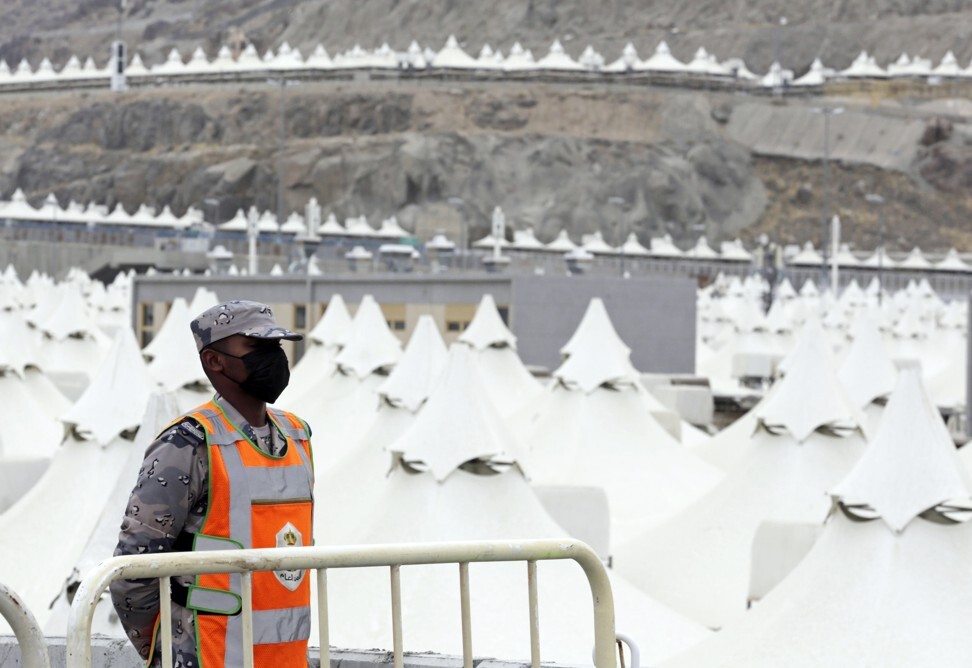
Coronavirus: Muslims begin downsized haj in Saudi Arabia
- This year, only 60,000 Saudis and foreigners already living in the oil-rich kingdom are taking part in the haj, one of Islam’s five pillars
- Vaccinated pilgrims were transported from the Saudi city of Mecca to the Mina valley where they will spend the night before heading to Mount Arafat

Vaccinated Muslim pilgrims living in Saudi Arabia started their haj pilgrimage on Sunday, an annual event strictly curtailed for the second consecutive year over Covid-19 concerns.
This year, only 60,000 Saudis and foreigners already living in the oil-rich kingdom are taking part in the haj, one of Islam’s five pillars.
The figure pales in comparison to the 2.5 million Muslims from all over the world who usually gather annually for the haj, Islam's largest congregation.
Last month, Saudi authorities said eligible pilgrims must be in the age group ranging from 18 to 65 years and fully vaccinated against Covid-19.
Pilgrims were transported from the Saudi city of Mecca to the Mina valley where they will spend the night before heading to Mount Arafat where the haj reaches its peak on Monday. Tuesday marks the start of the Muslim Eid al-Adha festival.
Around 47,000 pilgrims have already reached Mina, around 7 kilometres northeast of Mecca, and the rest will join them later on Sunday, Saudi-owned television al-Arabiya reported.
In Mecca, pilgrims walked seven times in an anticlockwise direction around the Kaaba, the cube-shaped holy building inside the Grand Mosque. They also ran back and forth between two historical hills in the area.
The pilgrims walked in tracks along signs put on the floor to maintain social distancing, a major difference from the usually packed Grand Mosque every year during the haj.
In an attempt to prevent human contact and infections, robots have been introduced to hand out bottles of holy water to pilgrims in the Grand Mosque, Saudi media reported.
Other robots are used for sanitising the sprawling mosque, Islam’s holiest site.
As part of the virus-controlled measures, Saudi authorities have banned entry into the holy sites during the haj without an official permit, slapping a fine of 10,000 riyals (2,666 dollar) on each violator.
It is the second year in a row that the haj has been restricted in this way, excluding pilgrims from abroad due to the global pandemic.
Saudi Arabia stakes its credibility on providing services that allow the pilgrims to perform the rituals as comfortably and smoothly as possible.
Over the years, the monarchy has spent lavishly to boost haj safety standards and expand facilities at the holy sites.
The haj is a mandatory duty for all Muslims to complete once in a lifetime, if they have the financial and physical means to do so.
During the haj, pilgrims perform the same rituals in a demonstration of religious unity, equality and pursuit of spiritual renewal.
In December, Saudi Arabia started mass vaccinations against Covid-19.
The Saudi Health Ministry reported this week that more than 22 million doses have since been administered in the country of around 35 million, including millions of migrant workers.
Saudi Arabia has so far confirmed over 509,000 virus cases resulting in more than 8,000 deaths.